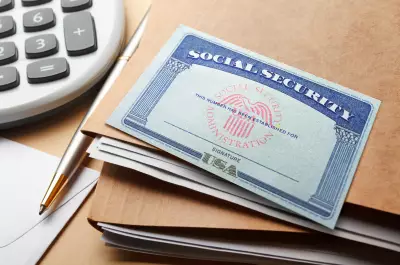What are Brushing Scams? Here’s How They Work
Table of Contents
- By David Lukic
- Published: Jun 07, 2021
- Last Updated: May 27, 2022
You may or may not have heard the term “brushing scam,” but they are another fraudulent technique scammers use to dupe you and ultimately benefit them financially.
What is a Brushing Scam?
You come home and find unexpected boxes on your doorstep from Amazon or other companies. You have just received a ton of free items that you didn’t order. What could be wrong with that? It may sound like a perfect scenario, but it’s really not. It’s called a brushing scam.
A brushing scam is when someone receives merchandise that they did not order. It may be in the form of Bluetooth speakers, electric toothbrushes, flashlights, tablets, or other fun items. It can feel like a free windfall, but companies send out free items to “pay” for a positive operate out of other countries outside the U.S., like China. Most often, the items sent are useless and cheap, like ping pong balls, masks (for Coronavirus), or other low-cost items.
Regardless of what free stuff they send you, the companies benefit by boosting their sales figures and gaining you as a “verified buyer” so they can post reviews in your name and say wonderful things about the product to get others to purchase it too.

How Do Brushing Scams Work?
The first thing to be concerned about if you received unsolicited packages that you did not order is how did they get your name and address? It may indicate adata breach, and your personal information may be out there and at risk of identity theft. There is a chance that they purchased your information from a marketing or public records company. However, it’s more likely that they stole the information somehow, or you were involved in a data breach, and your personal information has been sold on the dark web. They could even have hacked into your account. Not only is your name, address, and probably phone number out there but many more personal details could also be out there about you, like your social security number, bank or credit card numbers, and more.
Another way that these brushing scams hurt people is through fake reviews. The majority of people base their online shopping habits on reviews nowadays, and when positive reviews are faked and the numbers inflated, it drives customers to buy junk products. The next time you go to buy a product, look at the reviews. What if 50% or more of those are fake? Would you still feel comfortable purchasing the product knowing it is worthless? Probably not.
Another way this hurts you is that if the bad actors have control of any of your accounts and have ordered items in your name, they may have also posted reviews in your name since now that the product belongs to your account, you would be considered a “verified buyer.” This is a normal part of a brushing scam.
If the scammer knows your mailing address and the merchandise isn’t total junk, they could intend to steal it back before you even use it. These scams open you up to a whole host of other crimes. Sometimes these thieves order items using your account (hacked) and then steal the boxes off your porch before you get home. That is another crime perpetrated by “porch pirates.”

How Can I Protect Myself From Brushing Scams?
There are a few ways to spot brushing scams. The first is, look for a return label. Often brushing scam artists will not put a return address label on the package, so you cannot return it. If you cannot return the item, contact the retailer (Amazon or other stores) and report it. Amazon brushing is taken very seriously and will investigate the matter and remove that item and vendor from their system. If you receive Amazon packages, contact Amazon to report it. If they came from eBay, contact that company to report it. Often these scammers will use a fake account to post the reviews in your name and these retailers can shut them down.
Since you have no way of knowing how these criminals got your information, it is a good idea to change your online passwords, especially for the retailer where the product(s) came from. Because it could indicate identity theft, take these precautions as well:
- Keep a close eye on all your bank and credit card accounts.
- Get a copy of your credit report.
- Sign up for credit and identity monitoring.
- Keep antivirus/anti-malware software running on all your devices.
- Keep your computer and mobile phone updated with the latest security patches.
- Watch out for phishing emails that steal credentials.
- Never click a link or download attachments in an email.
- Consider a credit freeze so no one can open accounts in your name if your identity has been compromised.
- Report the fraud to the Federal Trade Commission - FTC ftc.gov) and Better Business Bureau (BBB - bbb.org) in your area.
- Report it to local law enforcement as well.
- Keep a close eye on all your online accounts.
According to the FBI, you can keep the merchandise; you do not have to send it back or get rid of it.
Even though fake online reviews and inflated sales figures can hurt you, the biggest danger to you is through your personal information in the hands of hackers or thieves. These are the issues you need to address as quickly as possible to protect yourself against further fraud. Once your personal information is out there, cybercriminals may try to contact you through text messages, email, or social media to engage you in other crimes. It is much easier to prevent identity theft than to clean up the mess after it has occurred. Some tips to avoid identity theft are:
- Protect your personal information at all costs.
- Never give out login credentials to anyone unsolicited.
- Always use super strong passwords on all your accounts.
- Never reuse passwords on multiple websites.
- Shred anything with your social security number, address, and phone number on it before throwing paperwork away.
- Watch your mail. Stolen mail is how thieves get information.
















